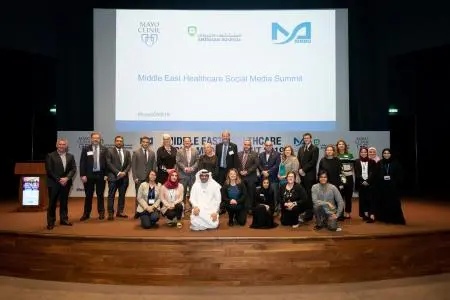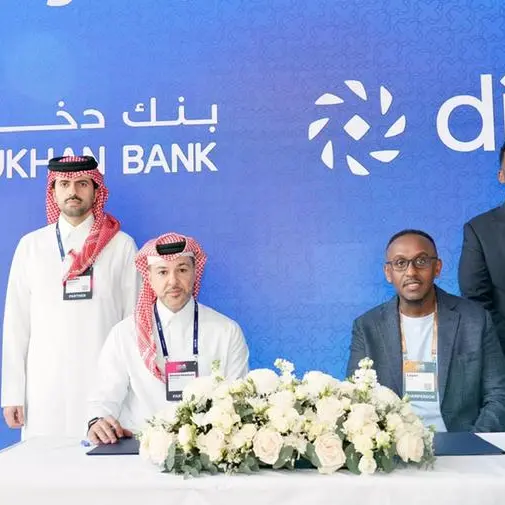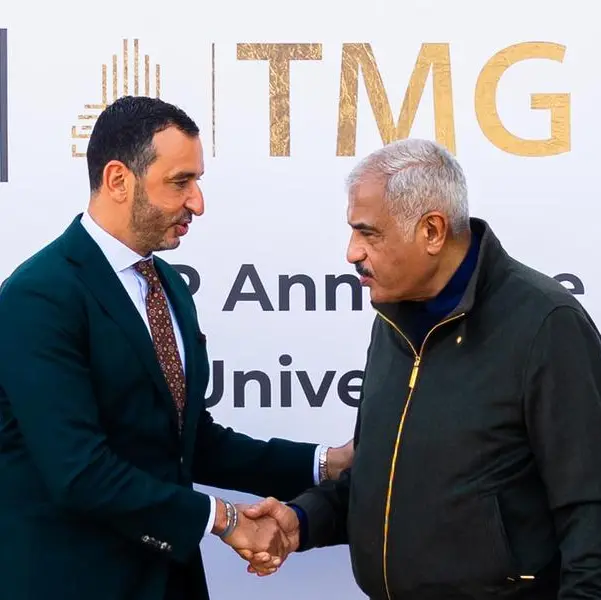PHOTO
Government of Dubai Media Office: Panelists at the first Middle East Healthcare Social Media Summit said online communities are critical for the advancement of the practice of healthcare. The two-day Summit, organised by Mayo Clinic in collaboration with The Mohammed Bin Rashid University of Medicine and Health Sciences (MBRU) and American Hospital Dubai, concluded today.
Speaking in a session on the second day of the Summit titled ‘Social Media – Patient Perspective’, Marie Ennis O’Connor, a member of the external advisory board of the Mayo Clinic Center for Social Media, said: “Far from complaining about ‘moaning patients’, what we in the medical world should do is partner with patients to create better online resources to empower them in the new digital age.”
“Patients don’t want to go to the internet to get information, they want to get it from the clinicians,” she told an audience of decision makers and senior professionals from across the healthcare sector at the Summit held at the MBRU campus in Dubai Healthcare City. “For many patients, finding an online community has made a significant difference to coping with illness,” said O’Connor, one of Health IT’s Top 100 influencers, and an internationally recognised keynote speaker, writer, and consultant on global trends in patient engagement, digital health, and participatory medicine.
“Doctors should start with the simple act of listening to the conversations already happening online,” said O’Connor. “There are many ways to do this. There are Facebook patient groups and patient blogs, which are a rich source of information about the patient experience. But I want to challenge you to go beyond merely listening to being an active participant in conversations. For that reason I want you to join patients on Twitter. I see Twitter as a space in which patients, researchers, clinicians and healthcare professionals are all coming together in a way that flattens the traditional hierarchical structures of medicine. And it all starts with a simple hashtag.”
She told the story of how the hashtag #BCSM - short for Breast Cancer Social Media - began as a conversation between breast cancer patients. “Two of these patients created a weekly Twitter chat to provide credible, evidence based information to anyone affected by breast cancer. It was soon joined by a surgeon who saw immense value in taking part in this conversation. He stumbled upon conversations between patients seeking answers to basic questions that should have been answered by physicians. “While BCSM was a trailblazer in its adoption of health related Twitter chats, many other cancer and disease-related Twitter chats have emerged,” O’Connor said.
O’Connor related her experience of coping with breast cancer, after being diagnosed with the disease in her late 20s. “I naively thought that breast cancer was something that happens to older women. I quickly learned that breast cancer, or any type of cancer, is a bewildering place for the newly diagnosed. It is easy to get lost without a map to guide you. When you are a patient, you aren’t always given a map,” she said.
When O’Connor learned that cancer treatment can affect fertility, “the narrative of my life changed forever. At that time, there was no support or information for young women regarding fertility preservation. Even today, half of all young patients with cancer are not told their treatment could impact fertility. In this information vacuum, patients have to turn to ‘Dr. Google’. Like it or not, patients will turn to Google,” she said.
She talked about the rise of e-patients, a term coined by US physician Tom Ferguson to describe patients who are equipped, enabled, empowered and engaged in their health and healthcare decisions with the help of digital technologies. “Dr. Ferguson has talked about smart, empowered and experienced e-patients who have up-to-date knowledge on the best healthcare resources,” she said.
Dr. Amer Sharif, Vice Chancellor of MBRU, said the Summit provided a great opportunity to promote the exchange of knowledge and expertise between doctors and medical institutions that have made significant contributions to the healthcare sector. The Summit is aligned with the vision of the leadership to transform Dubai and the UAE into a leading hub for the academic and professional healthcare community. This is a strategic objective that Dubai is seeking to realise with the active collaboration of both public and private sectors, he said.
Dr. Sharif expressed his gratitude to everyone who contributed to the success of the Summit, especially to Mayo Clinic for organising the event and the American Hospital in Dubai for its support. He said MBRU is seeking to enhance exchange of knowledge and expertise with leading international institutions and universities as part of its vision of becoming one of the world’s leading institutions in the healthcare sector. The University aims to develop a new generation of medical professionals that can support the growth of the medical field in Dubai and enhance the city’s position as a prime destination for high-quality medical services.
Daniel Cabrera, M.D., Mayo Clinic, also delivered his perspectives on the use of social media as an educational tool on the second day of the Summit. Speaking about the vital importance of a networked learning environment, he said: “We tend to think of the world as composed of individuals, but we live in a networked world. Interaction is important. We are moving from a personal experience to a collective experience,” he said.
The ‘Flexnarian model’ of medical education is no longer sustainable, he pointed out, since it creates silos, is elitist and biased against some groups. In today’s rapidly changing environment, the entire knowledge of humankind is at one’s fingertips. The challenge today is not how to access knowledge but how to apply it, he said. “We as teachers need to be professionals in using networks,” he added.
Cabrera noted that medical schools are not teaching students how to use AI, which is as important as doctor-patient skills. “Many jobs are dying but many new jobs surrounding AI are being created,” he said.
Earlier, on the second day of the Summit, Dr. Ali Al Dameh, Consultant Surgeon at the American Hospital of Dubai, explained how social media can have a big impact on patients’ health and choices. Referring to a study conducted in the USA, he said 160 million Americans look for healthcare information on the internet prior to visiting the doctor.
He stressed that doctors should take the lead in health related social media interactions but should maintain ethical integrity and use evidence-based information. Doctors must become experts on social media so that they can deliver better healthcare for patients, he added.
“The use of social media in healthcare has been able to increase interactions between doctors and patients and provide patients with more tailored information. It has also provided patients with social and emotional support and has the potential to influence health policies,” he said. “Patients are checking google at every step of their healthcare journey, so social media’s impact on patients is here to stay,” he further said.
Referring to another study, he said patients who engage with social media are more empowered and better at self-management and controlling their health. Positive experiences on the web enhance patients’ well-being.
In a session titled ‘Students’ Perspective: Transitioning from Personal to Professional’, MBRU medical student Faisal Nawaz, who actively uses Twitter to share medical knowledge and reflections on life as a medical student, said social media is a tool that students can harness for their success.
Nawaz realised the importance of having a professional interface when he joined university. “As I began my Twitter experience, I started connecting with the medical twitter community, sharing reflections on student life at MBRU. I began learning more than I thought I would by following research trends in various fields. I was also able to directly interact with authors, which was a great privilege.”
The platform enabled him to have discussions with medical students on topics such as student well-being, which opened his mind to new ideas. Nawaz also spoke about the need for institutions to incorporate social media skills in the curriculum and issue proper guidelines on the professional use of social media. “It is important to promote awareness of social media platforms as a learning tool rather than a networking tool,” he said. He advised students looking to start a professional account on social media to choose a platform that reflects their personality. He said engaging with the right social media mentors to obtain guidance is critical.
Apart from the conference held from 9-10 December, the Middle East Healthcare Social Media Summit, co-sponsored by MBRU and the American Hospital Dubai, a member of the Mayo Clinic Care Network, featured a pre-conference workshop on 8 December called Social Media Residency, which provided advanced training and consultation for those interested in practical knowledge of using social media tools in their health-related work.
-Ends-
© Press Release 2019Disclaimer: The contents of this press release was provided from an external third party provider. This website is not responsible for, and does not control, such external content. This content is provided on an “as is” and “as available” basis and has not been edited in any way. Neither this website nor our affiliates guarantee the accuracy of or endorse the views or opinions expressed in this press release.
The press release is provided for informational purposes only. The content does not provide tax, legal or investment advice or opinion regarding the suitability, value or profitability of any particular security, portfolio or investment strategy. Neither this website nor our affiliates shall be liable for any errors or inaccuracies in the content, or for any actions taken by you in reliance thereon. You expressly agree that your use of the information within this article is at your sole risk.
To the fullest extent permitted by applicable law, this website, its parent company, its subsidiaries, its affiliates and the respective shareholders, directors, officers, employees, agents, advertisers, content providers and licensors will not be liable (jointly or severally) to you for any direct, indirect, consequential, special, incidental, punitive or exemplary damages, including without limitation, lost profits, lost savings and lost revenues, whether in negligence, tort, contract or any other theory of liability, even if the parties have been advised of the possibility or could have foreseen any such damages.




















